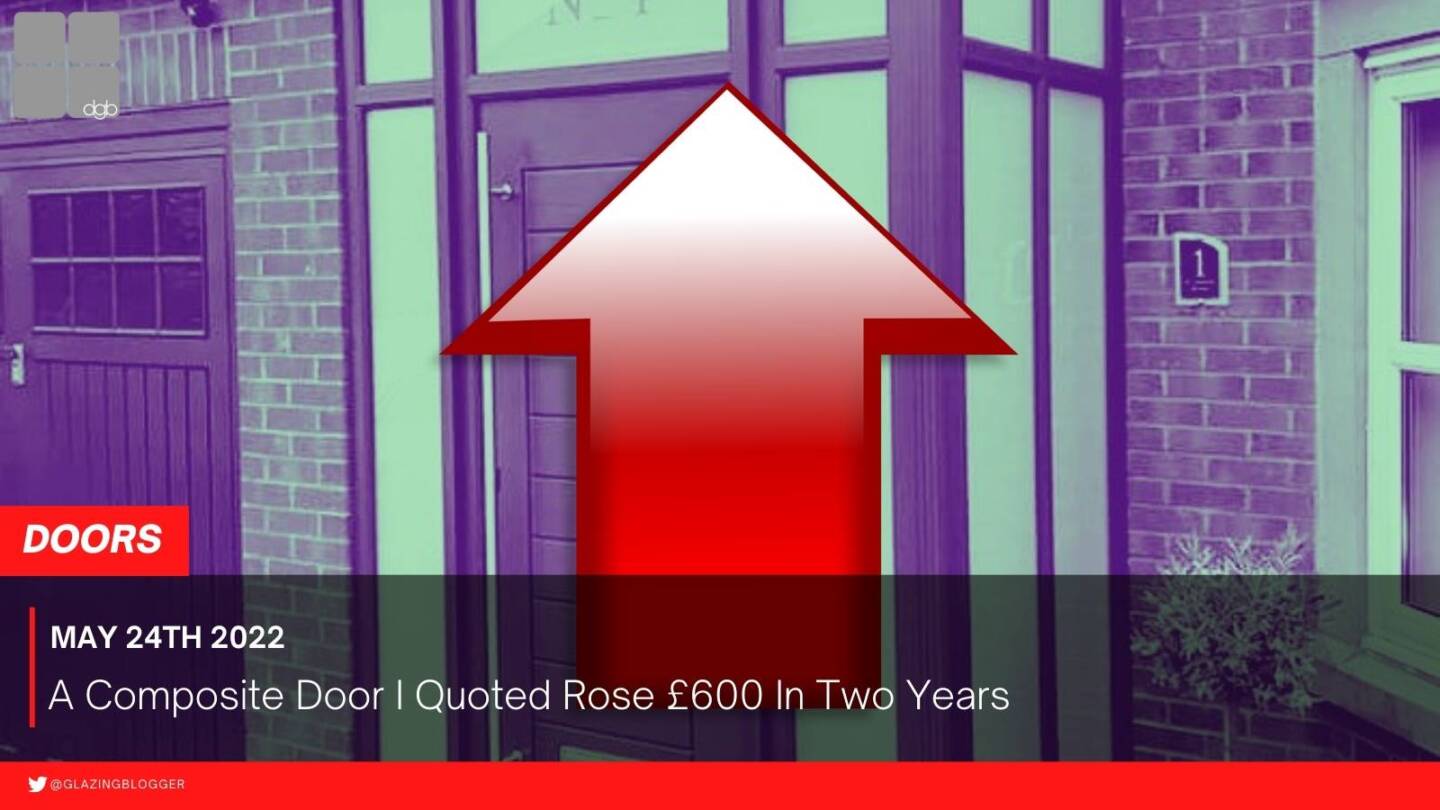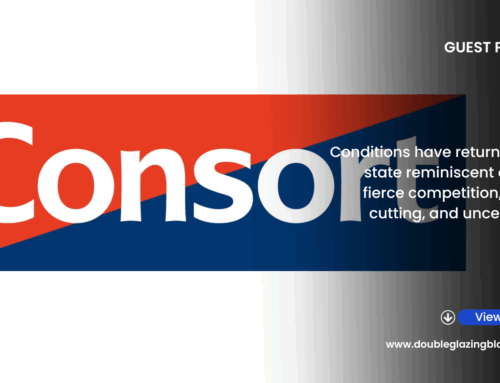The other day a client from March 2020, just before lockdowns came into force, came back to me to get a composite door re-priced at today’s prices.
The scale of the rise was rather drastic.
Composite door price up 40%
The type of composite door that was being quoted wasn’t anything remarkable. A Black slab in a White outer frame, Chrome handles and a semi-elaborate glass design. Nothing out of the ordinary.
I quoted in early March 2020, before lockdowns were introduced, and long before inflation was even being thought about as a problem. Then, as we know, the full force of the pandemic hit and we were shuttered for the best part of three months.
The fenestration sector was greeted by a very strong bounce-back, with record demand in many places and the sector facing a very different type of problem in managing to keep supply chains going. As a result, we began to see rampant price inflation just a few months after the lifting of lockdowns.
Price inflation has not stopped since and has seen all of our industry’s material costs shoot through the roof. When I was contacted again last week by the same client, who wanted to revisit her composite door quote from two years ago, the price had risen nearly £600, or 40%. This is in line with other data from the construction sector and represents the biggest cost increases in fenestration for decades.
The majority of the increase lies in material costs. There have been rises in the cost of labour and we have had to adjust our margins to accommodate our own higher costs, but the vast proportion of the £600 rise in that door is down to materials.
Prior to me sending the revised quote to the client, they were informed that prices had risen significantly since we spoke to them last. At the time of publishing this, we are yet to hear back from the client.
Prices will keep on rising
In all honesty, I do not expect to win the order for that door. The increase is vast and at a time when the cost of living is spiralling out of control, I won’t be holding my breath.
But we must factor in our plans for costs to keep on rising. In some areas, the pace of increase has slowed somewhat, such as glass. In other areas though, the increases keep on coming. We’re seeing rises in the price of profile, steel, aluminium, hardware and energy. All this continues to filter through to installers, with homeowners bearing the brunt of the increases.
Specifically, on composite doors, it will take time for prices to stabilise. The cost for skins, glass, hardware and timber all keep on rising, so we have to expect the overall cost for slabs and complete door sets to rise as well.
At our place, we regularly sell composite doors for over £2000 now. And these are not fancy models with all the bells and whistles. These are fairly basic designs, with regular colours, glass and hardware options too. In the north of England, more than £2000 for a composite door is a lot of money. Down south where prices are different it may not seem that much. Composite doors at the £2500 level at our place are now becoming more and more common. In some cases, they are approaching the price of some aluminium entrance doors.
In the coming weeks and months, installers are going to have to focus hard on selling based on value, not on price. Anyone ripping out margins in order to win a sale, against a backdrop of rising input costs and a worsening economy is asking for trouble.
Installers have to pass on higher costs handed down to them. If they don’t their business will quickly wither away. Your most solid bet as an installer is to sell your products based on their USPs, quality and value. If you convince your client that the composite door you’re trying to sell them is £2500 because of a number of important factors, then the price becomes less of an issue and can be justified in the mind of the client.
Unlike the last two years, 2022 is going to be a test of installers’ ability to sell, not take orders.
To get weekly updates from DGB sent to your inbox, enter your email address in the space below to subscribe:
By subscribing you agree to DGB sending you weekly email updates with all published content on this website, as well as any major updates to the services being run on DGB. Your data is never passed on to third parties or used by external advertising companies. Your data is protected and stored on secure servers run by Fivenines UK Ltd.






